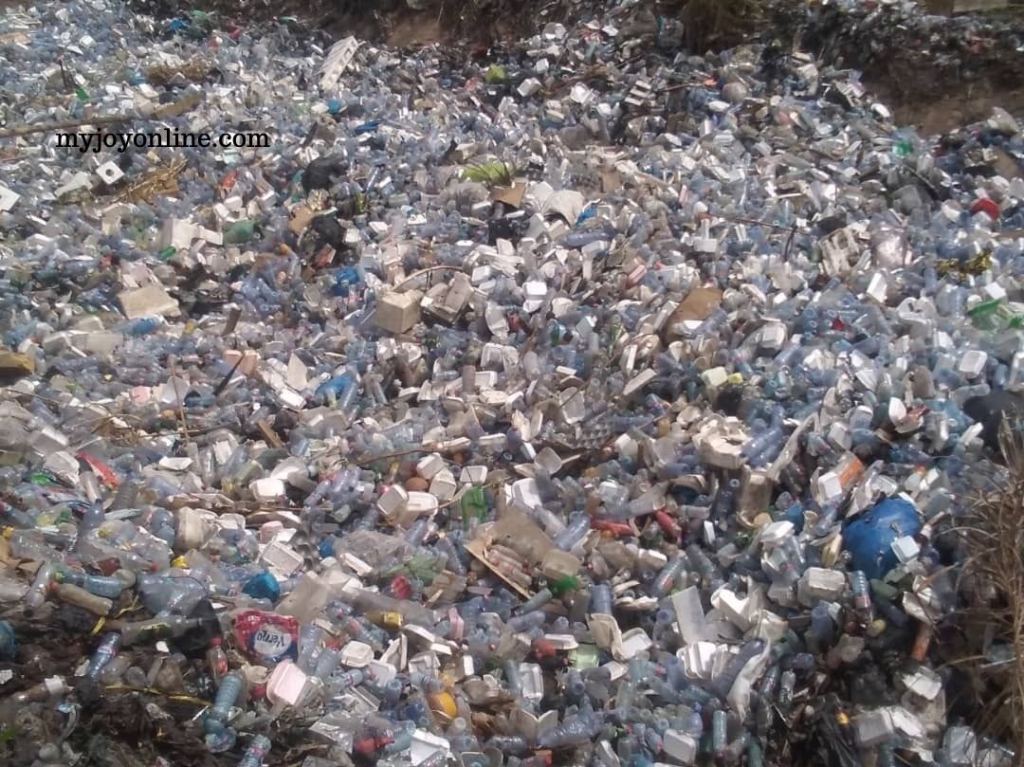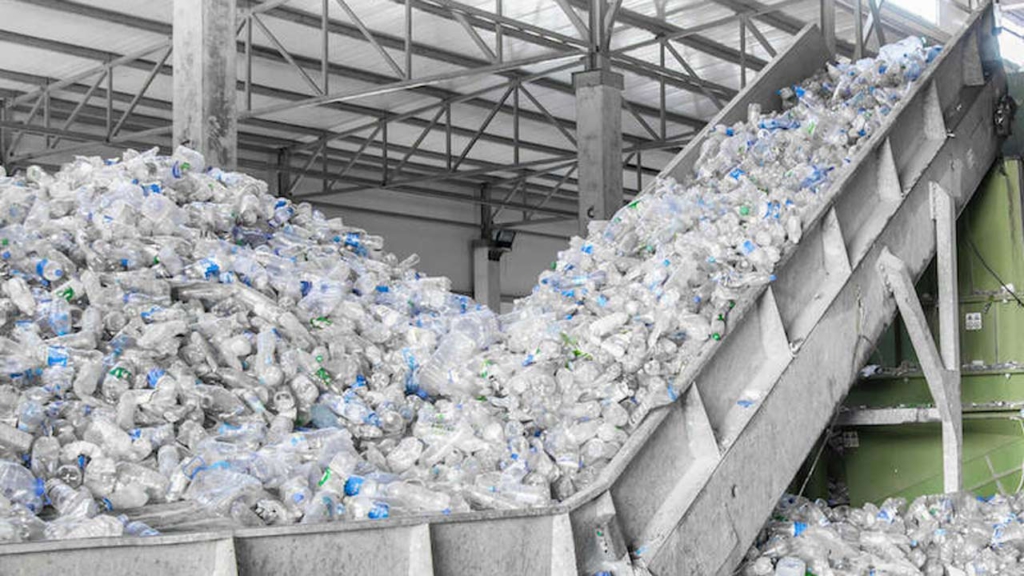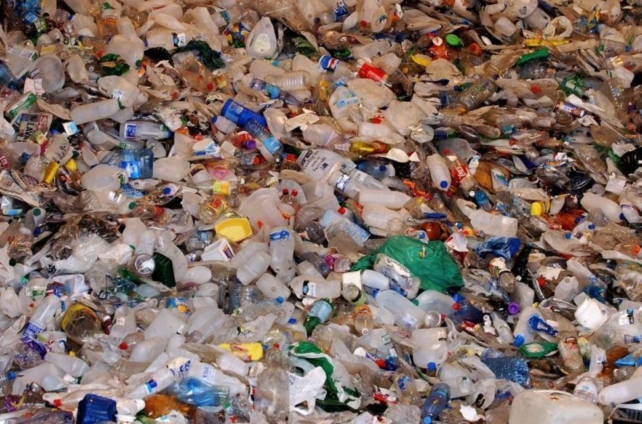The organisers of Britain's biggest ever survey of household plastic waste have called for immediate action to tackle what they say are "jaw-dropping" findings.
The Big Plastic Count was run across a week in May and its results show that the average participating household threw away 66 pieces of plastic in a week.
Using those figures the organisers, Greenpeace and Everyday Plastic, estimate that the UK throws out nearly 100 billion pieces of plastic a year.
The survey involved nearly 100,000 households meticulously documenting the type and amount of plastic they dispose of for seven days.
Its organisers say the results prove that recycling alone is not a solution for reducing how much plastic ends up as waste.
"This is a jaw-dropping amount of plastic waste," Greenpeace UK's plastics campaigner Chris Thorne said.
"Pretending we can sort this with recycling is just industry green-wash. We're creating a hundred billion bits of waste plastic a year, and recycling is hardly making a dent."
What we throw away
Those taking part in the survey were asked not just to count the number of pieces but also to record which type of plastic they used. Of the plastic, 83% was from food and drink packaging waste, with the most common items being fruit and vegetable packaging.
In response to the survey, Nadiya Catel-Arutyunova, sustainability policy advisor at the British Retail Consortium said: "The UK retail industry is leading the way in protecting the environment by reducing single-use packaging, regardless of the material type."

"The ability to remove branded single-use plastic (SUP) packaging is challenging but can be unlocked with partnerships and collaboration with producers and does not alter retailers' underlining drive to make quick and effective changes in reducing single-use plastics."
The UK government publishes data about the amount of plastic waste being collected from households and the latest statistics (2021) show that more than 2.5 million tonnes of plastic packaging waste was created, of which 44.2% is recycled. Half of that recycling (55%) takes places in the UK with the rest exported. Turkey is the most common destination.
"We are going further to tackle single use plastics through our landmark Environment Act," a spokesperson for the Department for Environment, Food and Rural affairs said. They highlighted measures that had already been taken to restrict the supply of plastic straws and cotton buds and said proposals were being finalising for a deposit return scheme for plastic bottles.
Not all plastic is equally easy to sort and recycle. Data from Recoup, a plastics charity, suggests that 61% of plastic bottles are recycled, 36% of plastic tubs and just 8% of plastic films.

The Big Plastic Count report authors discovered that more than half the plastics we throw out are the harder to recycle soft plastics. The report cross-referenced their findings with Recoup's data and calculated that just 12% of our plastic waste ends up being recycled in the UK.
"Recycling doesn't work, we all know it," Everyday Plastic founder Daniel Webb told BBC News, "If we think things are being recycled we can carry on the way we are. We need to address things further up the chain. By reducing the amount we produce it will reduce the amount that is thrown away." It's a very similar message to that of Prime Minister Boris Johnson back in October 2021 when he told a group of school children that recycling "doesn't work" and "is not the answer".
Latest Stories
-
Ashanti Presbytery holds 15 synod with renewed call for care for environment
16 minutes -
NGO Today for Tomorrow hands over 7-classroom block to Sakasaka Cluster of Schools in Tamale
17 minutes -
FDA confiscates illicit tobacco products in Accra
18 minutes -
Dr. Apaak welcomes Canadian International Development Scholarships team
22 minutes -
Police apprehend one more suspect in the killing of 26-year-old footballer in Tamale
1 hour -
Thaddeus Sory accuses Godfred Dame of hypocrisy
1 hour -
Tamale becoming transit point for drugs and arms – Northern Regional Police raise alarm
2 hours -
Thaddeus Sory to Dame: And still crying, even more incongruously – Part I
2 hours -
‘Confidence of the boys seem to be back’ – Kurt Okraku on Black Stars’ performance
3 hours -
IMCC holds strategic dialogue with experts on L.E.D
3 hours -
NDPC and IMCC collaborate to drive decentralisation reforms
3 hours -
‘Let us reaffirm our commitment to building a continent of prosperity’- Mahama to African leaders
3 hours -
Return stolen artefacts and cultural treasures that rightfully belong to our heritage – Mahama to colonial rulers
3 hours -
The Great Legal Showdown: Ego, Arrogance, and Popcorn!
3 hours -
We remain steadfast in our belief to achieve our goals – GFA President Kurt Okraku
3 hours

